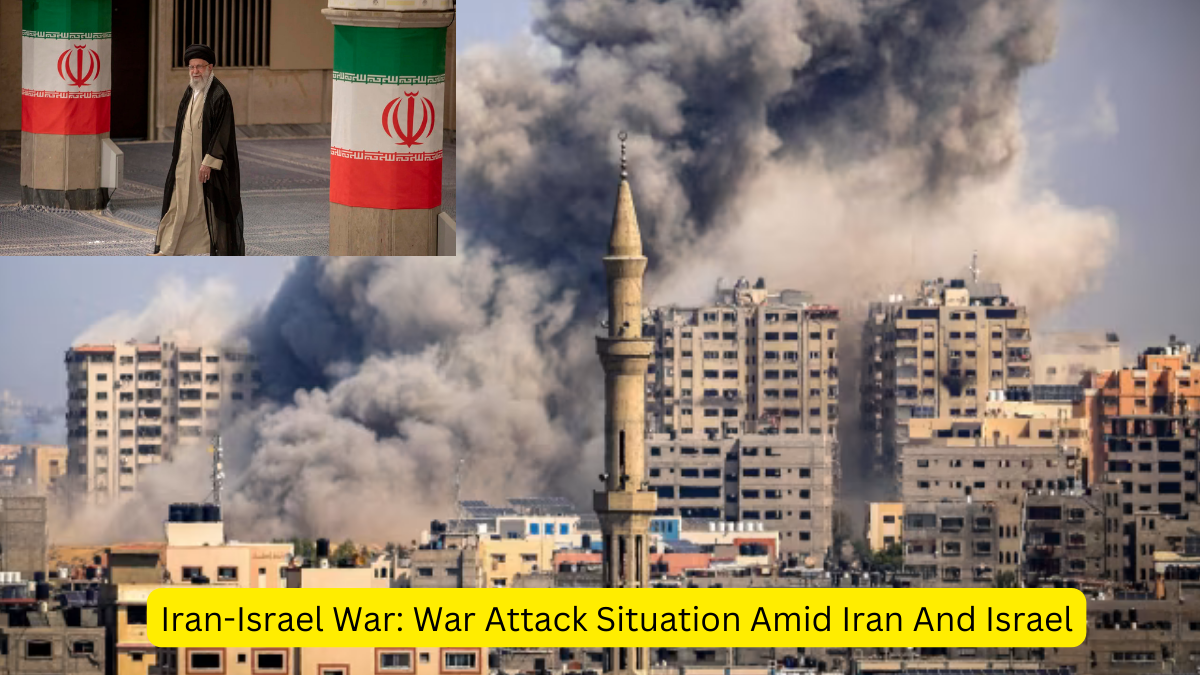US Secretary of State Antony Blinken has warned that Iran and Hezbollah may attack Israel within the next 24 to 48 hours. The unconfirmed report from US publication Axios was released on August 5, as fears grew of a regional war in the Middle East. Iran and Hezbollah have pledged to retaliate for the killing of the top leaders of Hamas and Hezbollah last week.
High risk of Iran-Israel war
Immediately following the assassination of Hamas leader Ismail Haniyeh on July 31, the US sent additional military forces to the Middle East in anticipation of retaliatory attacks. It insists that the deployment is “defensive”.
Iran-Israel possible attack
US Central Command chief, General Michael Kurilla, is reportedly set to arrive in Israel on August 5, to “finalise preparations” with the Israeli army “ahead of the possible attack”. Blinken told G7 counterparts in a conference call that Iran and Hezbollah could launch an attack against Israel as early as on August 5.
Iran and Hezbollah, retaliate
The sources said Blinken stressed that the US believes Iran and Hezbollah will both retaliate, Axios wrote, adding that Washington “doesn’t know the exact timing of the attacks” or what form they would take.
Diplomatic pressure on the trio
Blinken told his G7 counterpart that the United States hopes to halt the escalation by persuading Iran and Hezbollah to limit their attacks and restrain any Israeli response. He asked the other foreign ministers to join that push by applying diplomatic pressure on the trio.
Deep concern over the middle east
The G7, which also includes Canada, France, Germany, Italy, Japan and the United Kingdom, issued a statement on Monday expressing “deep concern over the heightened level of tension in the Middle East”, and called for restraint on all sides, insisting that “no country or nation stands to gain from a further escalation”.
Iran-Israel conflict, warning
Israeli Defence Minister Yoav Gallant issued a warning, saying: “If they dare to attack us, they will pay a heavy price.” The nearly 10-month-old war in Gaza between Israel and Hamas has led to regular low-level hostilities between Israel and Iran and Hezbollah, as well as other groups in the region that are aligned with Tehran.
Leave the country
The list of countries advising citizens to immediately leave Lebanon continued to grow on Monday, following warnings from the US and many European governments. Japan, Saudi Arabia and France are among the latest to urge their citizens to leave the country while commercial flights are still operating.
Why is Israel and Iran fighting?
Historical Context
- Revolution and Ideological Differences: The 1979 Iranian Revolution transformed Iran from a pro-Western monarchy under the Shah into an Islamic Republic led by Ayatollah Khomeini, who was staunchly anti-Western and anti-Israel. This ideological shift laid the groundwork for future enmity.
Geopolitical Rivalry
- Regional Influence: Both Israel and Iran aspire to be dominant powers in the Middle East. Iran seeks to expand its influence through proxy groups and alliances, while Israel aims to counter these efforts to ensure its own security and maintain its regional status.
Security Concerns
- Nuclear Program: Iran’s nuclear ambitions are a significant point of contention. Israel perceives a nuclear-armed Iran as an existential threat. Despite Iran’s claims that its nuclear program is for peaceful purposes, Israel fears the potential for nuclear weapons development and has taken both diplomatic and military actions to curb Iran’s progress.
Proxy Conflicts
- Support for Militant Groups: Iran supports various militant groups that are hostile to Israel, including Hezbollah in Lebanon, Hamas in Gaza, and other Shiite militias in the region. These groups often engage in armed conflict with Israel, further escalating tensions. Israel regularly conducts military operations against these groups and targets Iranian military infrastructure in Syria to prevent the transfer of advanced weaponry and the establishment of a permanent Iranian military presence near its borders.
Political and Diplomatic Factors
- Diplomatic Isolation: Israel has worked to establish and normalize relations with several Arab countries through agreements like the Abraham Accords, aiming to build a regional coalition against Iran. Conversely, Iran views these developments as a threat to its influence and security.
- Sanctions and Economic Warfare: The international sanctions regime led by the United States against Iran, particularly over its nuclear program and regional activities, has further strained relations. Israel often advocates for these sanctions, viewing them as a tool to limit Iran’s capabilities.
Ideological Hostility
- Anti-Israel Rhetoric: Iran’s leadership frequently employs anti-Israel rhetoric, calling for the destruction of the “Zionist regime.” This hostile stance is reciprocated by Israeli leaders who view Iran’s rhetoric and actions as direct threats.
Military Incidents and Cyber Warfare
- Military Engagements: There have been numerous instances of direct and indirect military engagements between the two countries. Israel has conducted airstrikes on Iranian targets in Syria and Iraq, while Iran has been accused of orchestrating attacks on Israeli interests globally. Cyber warfare has also been a significant aspect of their conflict, with both sides engaging in cyber attacks against each other’s infrastructure.
India’s instance on Iran Israel War
South Block quickly issued a statement expressing India’s “serious concern” at the escalation of hostilities, and called for “immediate de-escalation”. “We are seriously concerned at the escalation of hostilities between Israel and Iran which threatens the peace and security in the region. We call for immediate de-escalation, exercise of restraint, stepping back from violence and return to the path of diplomacy,” India said, adding that “It is vital that security and stability are maintained in the region.”




 World Health Organization Prequalifies N...
World Health Organization Prequalifies N...
 India Hosts First BRICS Sherpas Meeting ...
India Hosts First BRICS Sherpas Meeting ...
 Tarique Rahman Set to Lead Bangladesh? B...
Tarique Rahman Set to Lead Bangladesh? B...








